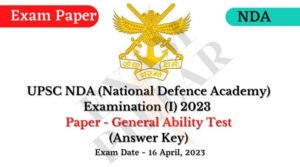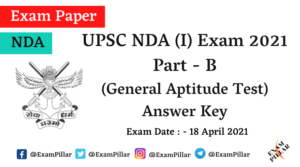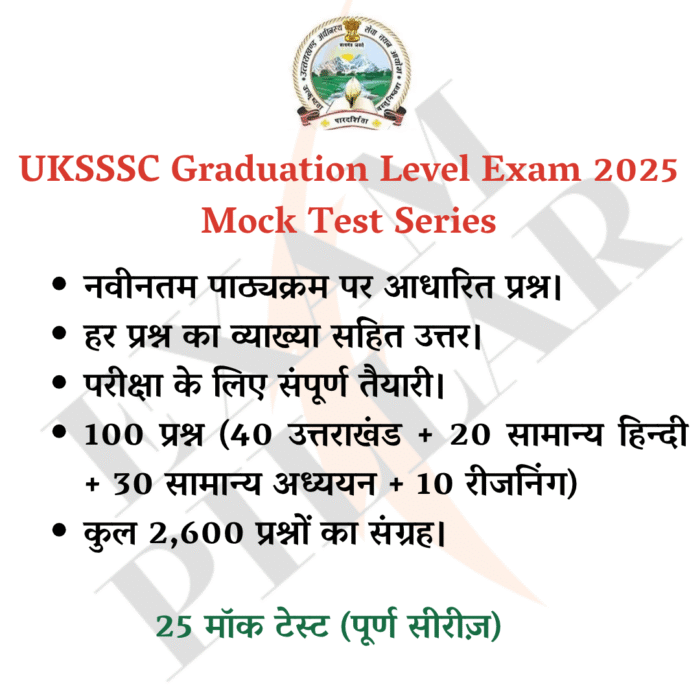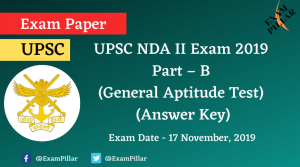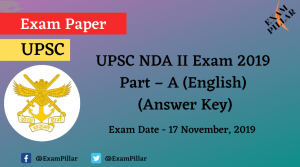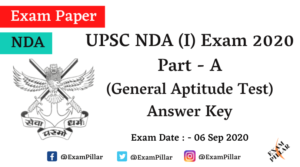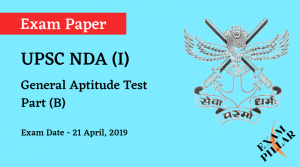ORDERING OF SENTENCES
Directions : In this section each item consists of six sentences of a passage. The first and sixth sentences are given in the beginning as S1 and 56. The middle four sentences in each have been jumbled up and labelled P, Q, R and S. You are required to find the proper sequence of the four sentences and mark your response accordingly on the Answer Sheet.
41.
S1: We do not know what to do with our knowledge.
S6: In the course of time they may rule over us altogether.
P : For example, we are unable to manage our machines.
Q : We already find it difficult to do without machines.
R : Machines should be fed properly and waited upon attentively; otherwise they refuse to work or cause destruction.
S : Science has given us superhuman powers, which we do not use properly.
The proper sequence should be
(a) S P R O
(b) P S Q R
(c) Q R P S
(d) S R P Q
Show Answer/Hide
42.
S1 : The British rule in India has brought about moral, material, cultural and spiritual ruination of this great country.
S6 : We are not to kill anybody but it is our dharma to see that the curse of this Government is blotted out.
P : I regard this rule as a curse.
Q : Sedition has become my religion.
R : Ours is a non-violent battle.
S : I am out to destroy this system of Government
The proper sequence should be
(a) S P R Q
(b) P S Q R
(c) Q R P S
(d) S R P Q
Show Answer/Hide
ORDERING OF WORDS IN A SENTENCE
Directions : Each of the following items in this section consists of a sentence, the parts of which have been jumbled. These parts have been labelled P, Q, R and S. Given below each sentence are four sequences namely (a), (b), (c) and (d). You are required to rearrange the jumbled parts of the sentence and mark your response accordingly.
43.
(P) the urban local body elections
(Q) unidentified gunmen
(R) and injured another during
(S) shot dead two workers
(a) Q S R P
(b) P Q S R
(c) S P R Q
(d) R P S Q
Show Answer/Hide
44.
(P) both intense political and
(Q) this state has a history of
(R) of syncretic accomplishments
(S) religious contestation and
(a) S Q P R
(b) P Q S R
(c) S Q R P
(d) Q P S R
Show Answer/Hide
45.
(P) the father also
(Q) in his quest for justice
(R) by the system
(S) feels let down
(a) S Q P R
(b) P S R O
(c) S Q R P
(d) P Q R S
Show Answer/Hide
COMPREHENSION
Directions : In this section you have a passage. After the passage, you will find some items based on the passage. First, read the passage and answer the items based on it. You are required to select your answers based on the contents of the passage and opinion of the author only.
Passage
I do not wish to suggest that because we were one nation we had no differences, but it is submitted that our leading men travelled throughout India either on foot or in bullock carts. They learned one another’s languages and there was no aloofness amongst them. What do you think could have been the intention of those farseeing ancestors of ours who stahlished Setubandha (Rameshwar) in the South, Jagannath in the East and Hardware in the North as places of pilgrimage ? You will admit they were no fools. They knew that worship of God could have been performed just as well at home. They taught us that those whose hearts were aglow with righteousness had the Ganges in their own homes. But they saw that India was one undivided land so made by nature. They, therefore argued that it must be one nation. Arguing thus, they established holy places in variou part of India and fired the people with an idea of nationality in a manner unknow in other world. And we Indians are one as no two Englishmen are. Only you and I and others who consider ourselves civilized and superior persons imagine that we are nations. It was after the advent of railways that we began to bene distinctions, and you are at liberty now to say that it is through the railways that we are beginning to abolish those distinctions. An opium-eating may argue the advantage of opium-eating from the fact that he began to understand the evil of the opium habit after having eaten it. I would ask you to consider well what I had said on the railways.
46. According to the author, India
(a) has never been one nation
(b) has been an aggregate of several nations
(c) has always been one nation along with differences
(d) became a nation after the British came
Show Answer/Hide
47. Why did the great sages of India establish pilgrimages in the different corners of the country?
(a) Because they wanted to push people to travel to different places
(b) Because they could observe the underlying unity of the country as made by nature
(c) Because they themselves had travelled to these places
(d) Because they wanted people to be religious everywhere
Show Answer/Hide
48. In the passage, the author’s attitude towards the railways is
(a) critical
(b) sympathetic
(c) indifferent
(d) apathetic
Show Answer/Hide
49. What does the author mean when he says that “whose hearts were aglow with righteousness had the Ganges in their own homes”?
(a) One need not visit the Ganges to take holy bath
(b) The Ganges has been polluted, so one should bath at home
(c) One should take a holy dip in the Ganges to purify one’s heart
(d) The purity of heart is superior to observance of any ritual
Show Answer/Hide
50. The paragraph is written in a
(a) dialogic style
(b) prescriptive style
(d) analytical style
(c) descriptive style
Show Answer/Hide
| Read Also : |
|---|


